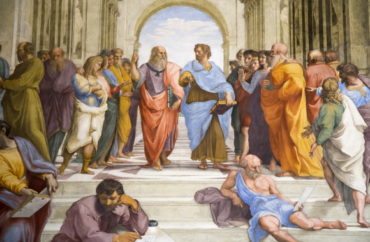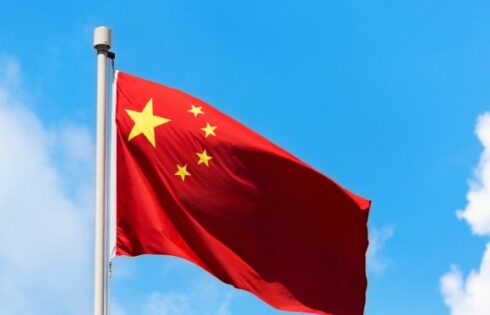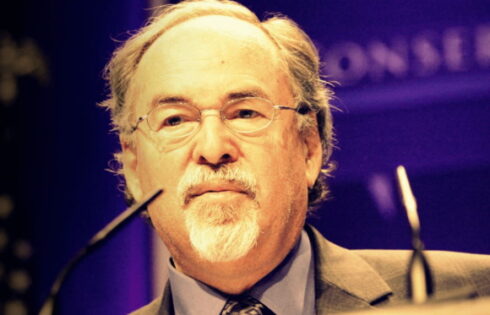
‘Deep down we know we need things bigger than consumerism and power politics’
More and more universities across the country today elevate social justice — including diversity, equity, and inclusion and antiracism — as essential or ultimate goals, permeating research, hiring, curricula and student culture.
While many colleges and universities are well on their way to becoming what psychologist and NYU Professor Jonathan Haidt has called Social Justice U, there are those who stand sharply athwart to this trend, offering hope for higher education.
These plucky freethinkers preserve an older vision of the university. For them, educators should give diversity its due but not make it their overriding vocation.
Here are 15 scholars that carried the torch for disinterested inquiry and the passionate search for truth in 2022:
Jonathan Haidt
The NYU professor argues that the conflict at universities “between truth and social justice is likely to become unmanageable.” Haidt stated in September that he would resign from the Society for Personality and Social Psychology because he believes the DEI and anti-racism commitments it requires from its members are in conflict with his duty to tell the truth.
“In order to present research at the conference, all social psychologists are now required to submit a statement explaining ‘whether and how this submission advances the equity, inclusion, and anti-racism goals of SPSP,'” he wrote in an essay for Heterodox: The Blog.
“Most academic work has nothing to do with diversity, so these mandatory statements force many academics to betray their quasi-fiduciary duty to the truth by spinning, twisting, or otherwise inventing some tenuous connection to diversity,” Haidt continued.
“I refuse to do this.”
Dorian Abbot
The University of Chicago geologist has fought the corruption of science by progressive dogma. This year he continued to advance his alternative to DEI, called “Merit, Fairness and Equality,” or MFE. On his blog, Heterodox STEM, started in January, he’s brought together freethinking scientists who want to save research from ideology.
Anna Krylov
In a Heterodox STEM post in November, this outspoken chemistry professor at USC and Soviet émigrée wrote how contemporary American higher education now resembles schooling in the Soviet Union.
Lawrence Krauss
This world-renowned top theoretical physicist frequently sounds the alarm on woke ideology corrupting science, including in an interview with The College Fix this year.
“Colleagues have written to me about being personally and viciously attacked just for asking for a discussion. It’s terrifying and unfortunate and, of course, awful for the field,” he said.
Justin McBrayer
The philosophy professor at Fort Lewis College in Colorado called attention to the similarity between the faith statements he once had to submit to apply to religious colleges and the diversity pledges secular schools now routinely require in a May essay.
“People who are less certain about sociological issues surrounding demographic diversity or those holding nonstandard (read: nonliberal) views about diversity are discouraged from applying,” McBrayer wrote.
John McWhorter
The linguist and Columbia University professor continues to serve as a prolific critic of wokeness and cancel culture. Importantly, he’s given thoughtful consideration to the allegedly racist sin of professors using the “n-word” as a teaching tool rather than a slur.
Harvey Mansfield
This Ivy League professor, a political philosopher who has been at Harvard since 1949, has advocated for classical liberal arts education for six decades.
Mansfield’s understanding of what he calls the “permanent problems” comes in part from his reading of classic philosophical texts like Plato’s “Republic,” which he describes as “beautiful books” because “every word in them counts.”
Justin Dyer
In the spirit of analyzing the “permanent problems,” this professor of political thought at the University of Texas-Austin started a new think tank, the Civitas Institute, which will bring together students to study in a context that encourages “independent thought, civil discourse, free speech, reasoned inquiry and intellectual curiosity,” according to the university.
Ben Sasse
The GOP senator is set to become perhaps the most politically powerful academic truth-seeker in America. The University of Florida Board of Trustees unanimously elected him as their new university president in November. He will begin January 8.
“I’m a romantic when it comes to the importance of education and the mission of a university,” Sasse said in a November meeting with the Board of Trustees.
“Deep down we know we need things bigger than consumerism and power politics,” he said.
Jordan Peterson
This former professor continues to serve as a leading scholar and truth speaker to the masses. To that end, Ralston College appointed Peterson as chancellor in May. This upstart school in Georgia is dedicated to a traditional vision of education.
Stephen Blackwood
The Ralston president and former Harvard fellow has clear priorities. “I believe that most colleges and universities have lost their way — that they are failing to provide the liberating, self-knowledge-giving experience that many young people seek,” he wrote on his personal website.
“I believe that we must found new institutions of higher education … and I believe the flourishing of a fully human culture depends on such institutions,” Blackwood stated.
John Cochrane
This Stanford University economist had a hand in both helping to host the Stanford Academic Freedom conference in November as well as the creation and circulation of the “Stanford Academic Freedom Declaration,” which calls on universities to restore free speech, academic freedom and institutional neutrality. As of Dec. 28 the open letter had amassed 1,653 signatures.
Richard Lowery
This UT-Austin finance professor is the guy who is willing to do the tough work to effect change. Most recently, he became the lead plaintiff in a lawsuit against Texas A&M University that accuses the public institution of creating a program in which scholars of color will be given preferential hiring treatment over white and Asian males.
Peter Boghossian
Boghossian, co-creator of of the “Conceptual Penis” hoax, famously resigned from Portland State University in 2021, citing its “transformation from a bastion of free inquiry into a Social Justice factory whose only inputs were race, gender, and victimhood and whose only outputs were grievance and division.” Since then, he’s kept busy, serving as a founding member of the independent University of Austin. He also conducts on-campus interviews to highlight logical fallacies propagated by many college students, posting the results on his popular YouTube channel.
Randy Wayne
For many years, Cornell Law Professor William Jacobson, editor of Legal Insurrection, has been one of the lone voices of reason at the Ivy League institution. Today, he’s not alone. Over the last 18 months, Cornell biologist Randy Wayne has publicly called out his longtime institution for its kowtowing to progressive ideologies. Wayne also deserves a lot of credit for the triumphant return of the Abraham Lincoln bust to campus this year.
Honorable mention
A shout out to the five dozen professors at University of Massachusetts at Boston’s College of Science and Mathematics, who signed their name to an open letter criticizing drafted school proposals to link funding and policy decisions to diversity, equity and inclusion tenets.
“Under no circumstances can political or ideological activism be the primary purpose of a public university,” they wrote in an open letter (emphasis in the original).
MORE: Woke scholarship harms the humanities. Love of beauty can save them.
Editor’s Note: This article has been updated to correct the spelling of Stephen Blackwood’s name.
IMAGE: Vatican Museums
Like The College Fix on Facebook / Follow us on Twitter





Please join the conversation about our stories on Facebook, Twitter, Instagram, Reddit, MeWe, Rumble, Gab, Minds and Gettr.